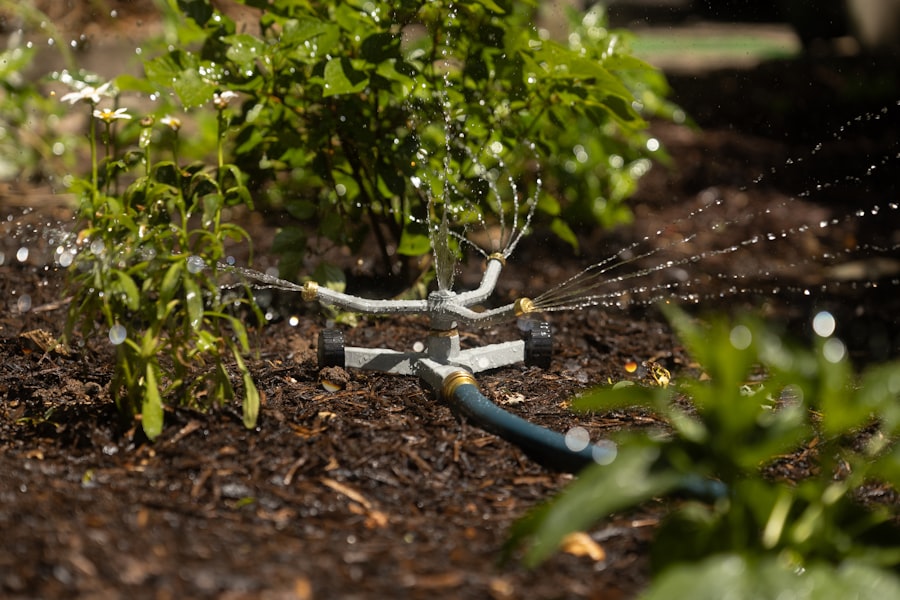Raccoons pose a significant threat to backyard chicken coops due to their intelligence and adaptability. These nocturnal animals are skilled climbers, capable of scaling fences and walls to access chickens. Once inside a coop, raccoons can cause extensive damage, killing or injuring chickens for food or out of predatory instinct.
They also steal eggs and disrupt nesting areas, causing stress to the flock. Raccoons can carry diseases such as rabies and various parasites, which may endanger both chickens and humans. Their opportunistic feeding habits make chicken coops attractive targets.
With dexterous paws and sharp claws, raccoons can manipulate latches and locks, easily gaining entry to coops. The threat raccoons pose extends beyond immediate physical harm to chickens. They can negatively impact the overall well-being of a flock through stress and disruption.
Understanding raccoon behavior and capabilities is crucial for implementing effective protective measures for chicken coops and ensuring the safety of backyard poultry.
Table of Contents
- 1 Securing the Chicken Coop: Tips for Raccoon-Proofing
- 2 Using Natural Deterrents: Plants and Scents to Keep Raccoons Away
- 3 Implementing Predator-Proof Fencing and Enclosures
- 4 Keeping Food Sources Secure: Tips for Preventing Raccoon Attraction
- 5 Monitoring and Maintenance: Regular Checks for Signs of Raccoon Activity
- 6 Seeking Professional Help: When to Call in the Experts for Raccoon Control
- 7 FAQs
- 7.1 What are some effective ways to keep raccoons away from my chickens?
- 7.2 What should I do if I suspect raccoons are targeting my chickens?
- 7.3 Are there any natural deterrents that can help keep raccoons away from my chickens?
- 7.4 What are some signs that raccoons may be targeting my chickens?
- 7.5 Is it legal to trap or kill raccoons that are targeting my chickens?
Key Takeaways
- Raccoons pose a threat to chickens as they are natural predators and can easily access chicken coops.
- Securing the chicken coop with strong locks, latches, and hardware cloth can help prevent raccoons from gaining access.
- Using natural deterrents such as strong-smelling plants and scents like peppermint and garlic can help keep raccoons away from the chicken coop.
- Implementing predator-proof fencing and enclosures can provide an extra layer of protection against raccoon attacks.
- Keeping food sources secure by using tightly sealed containers and removing any spilled food can help prevent raccoons from being attracted to the area.
- Regular monitoring and maintenance of the chicken coop is important to check for signs of raccoon activity and make any necessary repairs.
- If raccoon control becomes overwhelming, it may be necessary to seek professional help to effectively manage the situation.
Securing the Chicken Coop: Tips for Raccoon-Proofing
Inspect and Reinforce the Coop
Start by inspecting the coop for any gaps in the walls, loose boards, or compromised wire mesh. Repair any damage and reinforce weak spots to prevent raccoons from gaining access.
Secure Doors and Windows
Install heavy-duty locks and latches on all doors and windows to ensure that raccoons cannot pry them open. Consider adding a predator apron around the perimeter of the coop, burying wire mesh several inches deep to deter digging.
Deter Raccoons with Light and Sound
Raccoons are nocturnal animals and are sensitive to light and sound, so installing motion-activated lights and alarms can startle them and drive them away from the coop. Additionally, consider adding a hardware cloth barrier around the run area to prevent raccoons from reaching through the wire mesh to grab chickens. By taking these proactive measures, you can significantly reduce the risk of raccoon attacks on your flock.
Using Natural Deterrents: Plants and Scents to Keep Raccoons Away

In addition to physical barriers, natural deterrents can be used to keep raccoons away from your chicken coop. Certain plants and scents are known to repel raccoons and can be strategically placed around the coop to create a deterrent barrier. For example, planting marigolds, daffodils, or garlic around the perimeter of the coop can help deter raccoons due to their strong odors.
Similarly, spreading predator urine or ammonia-soaked rags around the coop can create a scent barrier that raccoons find unpleasant. Another natural deterrent is the use of motion-activated sprinkler systems. These devices release a sudden burst of water when triggered by motion, startling and deterring raccoons from approaching the coop.
Additionally, consider using natural predators such as dogs or guard geese to help protect your chickens from raccoon attacks. By incorporating these natural deterrents into your overall raccoon control strategy, you can create a multi-layered defense system that makes your chicken coop less appealing to raccoons.
Implementing Predator-Proof Fencing and Enclosures
One of the most effective ways to protect your chickens from raccoon attacks is by implementing predator-proof fencing and enclosures. Use heavy-duty wire mesh with small openings to prevent raccoons from reaching through or squeezing into the coop. Bury the wire mesh several inches deep around the perimeter of the coop to prevent raccoons from digging underneath.
Additionally, consider adding a roof or cover to the run area to prevent raccoons from climbing over the top. Another important aspect of predator-proof fencing is ensuring that there are no overhanging branches or structures near the coop that could provide access for raccoons. Trim back any vegetation and remove any potential climbing aids such as ladders or stacked objects that could be used by raccoons to gain access to the coop.
By implementing these predator-proof fencing measures, you can create a secure environment for your chickens that is less susceptible to raccoon attacks.
Keeping Food Sources Secure: Tips for Preventing Raccoon Attraction
Raccoons are attracted to food sources, making it essential to keep chicken feed and water secure to prevent raccoon activity around the coop. Store chicken feed in secure containers that are resistant to tampering by raccoons. Consider using metal bins with locking lids or elevated feeders that are inaccessible to raccoons.
Additionally, avoid leaving food scraps or spilled feed around the coop, as this can attract raccoons and other pests. It’s also important to secure trash cans and compost bins to prevent raccoons from scavenging for food near the coop. Use tightly sealed lids and consider storing trash cans in a secure enclosure to prevent raccoon access.
By keeping food sources secure and minimizing opportunities for raccoons to find food near the coop, you can reduce the likelihood of raccoon activity and potential attacks on your flock.
Monitoring and Maintenance: Regular Checks for Signs of Raccoon Activity

Conducting Routine Inspections
Regularly inspect the coop and surrounding area for signs of raccoon presence, such as tracks, droppings, or damage to the fencing or structure. This will help you identify any potential entry points that may have been compromised.
Identifying and Repairing Vulnerabilities
Look for any potential entry points that may have been compromised and repair them promptly. This will prevent raccoons from gaining access to your chicken coop and reduce the risk of an attack.
Proactive Monitoring and Threat Identification
Consider installing trail cameras around the coop to monitor for nocturnal activity and identify any potential threats. By staying vigilant and conducting regular checks for signs of raccoon activity, you can proactively address any issues before they escalate into a serious threat to your flock.
Seeking Professional Help: When to Call in the Experts for Raccoon Control
In some cases, dealing with raccoon infestations or persistent activity around your chicken coop may require professional assistance. If you have tried various deterrents and security measures without success, it may be time to seek help from wildlife control experts or pest management professionals. These professionals have the knowledge and experience to effectively address raccoon infestations and implement long-term solutions for protecting your chickens.
Wildlife control experts can conduct thorough inspections of your property, identify potential entry points, and implement exclusion measures to prevent raccoons from accessing the coop. They can also provide guidance on habitat modification and other strategies for reducing attractants that may be drawing raccoons to your property. By enlisting the help of professionals, you can ensure that your chicken coop is effectively protected from raccoon threats, allowing your flock to thrive in a safe and secure environment.
In conclusion, protecting your chickens from raccoon attacks requires a multi-faceted approach that includes securing the coop, using natural deterrents, implementing predator-proof fencing, keeping food sources secure, monitoring for signs of raccoon activity, and seeking professional help when needed. By understanding the threat that raccoons pose to your flock and taking proactive measures to mitigate these risks, you can create a safe and secure environment for your chickens to thrive. With careful planning and consistent maintenance, you can effectively protect your chickens from raccoon attacks and ensure their well-being for years to come.
If you’re looking for tips on keeping raccoons away from your chickens, you may also be interested in learning about the size of coop needed for chickens. Check out this article to ensure your chickens have enough space to stay safe and comfortable.
FAQs
What are some effective ways to keep raccoons away from my chickens?
Some effective ways to keep raccoons away from your chickens include securing your coop with strong locks, using motion-activated lights or sprinklers, and installing an electric fence around the perimeter of the coop.
What should I do if I suspect raccoons are targeting my chickens?
If you suspect raccoons are targeting your chickens, it’s important to take immediate action to secure your coop and protect your birds. This may involve reinforcing the coop with stronger materials, setting up deterrents, and removing any potential food sources that may be attracting the raccoons.
Are there any natural deterrents that can help keep raccoons away from my chickens?
Some natural deterrents that can help keep raccoons away from your chickens include using strong-smelling substances like ammonia or predator urine around the coop, as well as planting thorny bushes or installing prickly surfaces near the coop to discourage raccoons from approaching.
What are some signs that raccoons may be targeting my chickens?
Some signs that raccoons may be targeting your chickens include finding feathers or eggshells scattered around the coop, noticing damage to the coop or fencing, and hearing unusual noises or disturbances around the coop at night.
Is it legal to trap or kill raccoons that are targeting my chickens?
Laws regarding the trapping or killing of raccoons vary by location, so it’s important to check with your local wildlife authorities to determine the legal options available to you. In some areas, it may be legal to trap and relocate raccoons, while in others, you may need a permit to do so.
Meet Walter, the feathered-friend fanatic of Florida! Nestled in the sunshine state, Walter struts through life with his feathered companions, clucking his way to happiness. With a coop that’s fancier than a five-star hotel, he’s the Don Juan of the chicken world. When he’s not teaching his hens to do the cha-cha, you’ll find him in a heated debate with his prized rooster, Sir Clucks-a-Lot. Walter’s poultry passion is no yolk; he’s the sunny-side-up guy you never knew you needed in your flock of friends!







